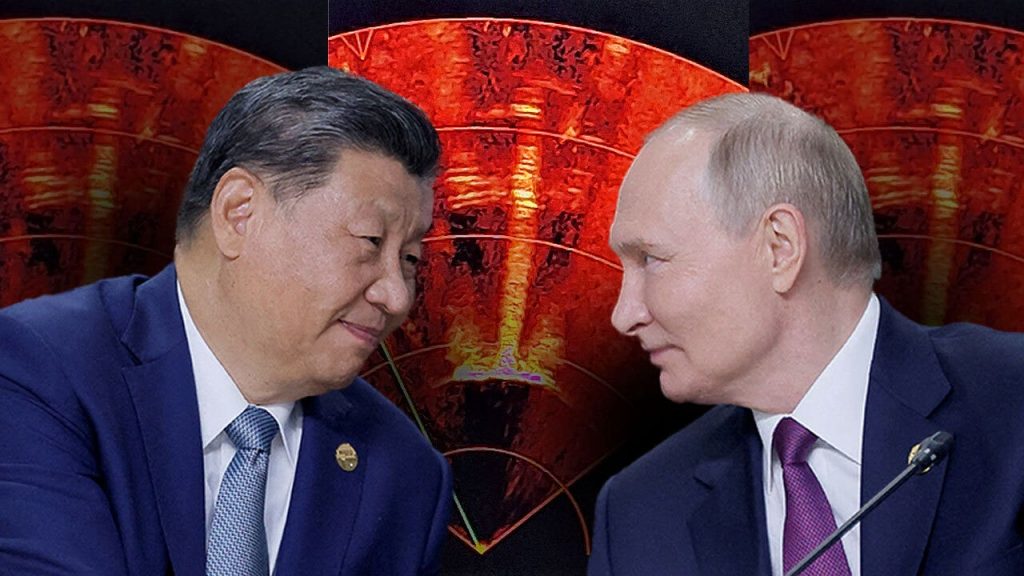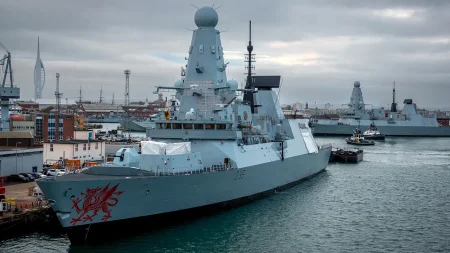The vulnerability of undersea cables, crucial for global communication and internet connectivity, has been brought into sharp focus by a series of suspected sabotage incidents in the Baltic Sea and the South China Sea. These attacks, attributed to Russia and China respectively, have raised concerns among top officials who suspect a coordinated effort rather than mere coincidence. The incidents, occurring within a short timeframe, highlight a concerning trend of increased maritime sabotage, particularly following Russia’s invasion of Ukraine.
In November 2024, two undersea cables in the Baltic Sea were severed, disrupting communication between Sweden, Lithuania, Finland, and Germany. A Chinese-flagged commercial ship, the Yi Peng 3, was implicated, with evidence suggesting its anchor was dragged along the seabed for over 100 miles, causing the damage. This incident mirrored a similar event in October 2023, involving another Chinese vessel, the NewNew Polar Bear, which damaged the Balticconnector gas pipeline and telecommunication cables. While Beijing denies intentional wrongdoing, the repeated involvement of Chinese ships raises suspicions, particularly given China’s history of targeting undersea cables connected to Taiwan.
The strategic implications of these attacks are significant. The Baltic Sea region, crucial for European connectivity and energy security, has become a focal point of hybrid warfare tactics employed by Russia. Simultaneously, China’s actions in the South China Sea, where Taiwan faces similar threats to its undersea cable infrastructure, mirror the Baltic Sea incidents. This parallel raises concerns about potential coordination or at least a shared understanding between Russia and China in exploiting this vulnerability. The EU’s High Representative, Kaja Kallas, directly links the two, highlighting China’s support for Russia and warning against viewing these incidents as mere coincidences. She stresses the need for a strong US response to Russia to deter similar actions from China.
Beyond the immediate disruption to communication and energy infrastructure, these attacks underscore a broader geopolitical strategy. Russia, already engaged in a hybrid campaign against Europe, has intensified its efforts since the invasion of Ukraine. These efforts range from disinformation and cyberattacks to weaponizing energy supplies. China, closely observing the international response to Russia’s actions, appears to be adopting similar tactics, potentially emboldened by the perceived lack of consequences. This coordinated approach, albeit not explicitly confirmed, poses a significant challenge to international security and stability.
Adding to the complexity, Finland seized a Russian-linked vessel, the Eagle S, suspected of damaging multiple undersea cables on Christmas Day. This incident, again involving anchor dragging, further implicates Russia in these acts of sabotage. The use of “shadow fleet” vessels, often older and under dubious ownership, allows Russia to circumvent sanctions and continue financing its war in Ukraine while maintaining a level of deniability. While direct evidence linking Russia and China in a coordinated campaign is lacking, the timing, methods, and strategic implications of these attacks raise serious questions about potential collaboration.
The international response to these incidents has been measured but firm. NATO is developing a new defensive strategy, “Baltic Sentry,” to enhance security in the Baltic Sea. This strategy involves increased naval presence, drone deployment, and AI-powered detection systems. While NATO has not officially attributed the incidents to a coordinated Russo-Chinese operation, a Western security official, speaking anonymously, suggested that the attacks appear more planned and coordinated than random acts. This assessment underscores the growing concern within the security community about the deliberate nature of these attacks and their potential long-term consequences for global stability. The vulnerability of undersea infrastructure has become a significant security concern, requiring international cooperation to deter further attacks and protect critical communication and energy networks.















